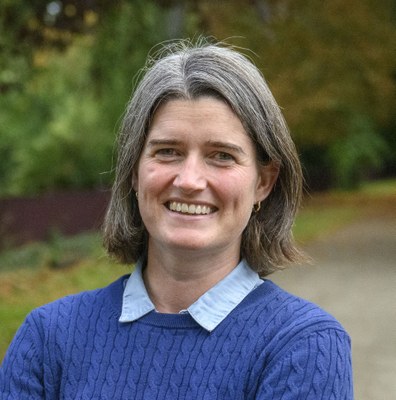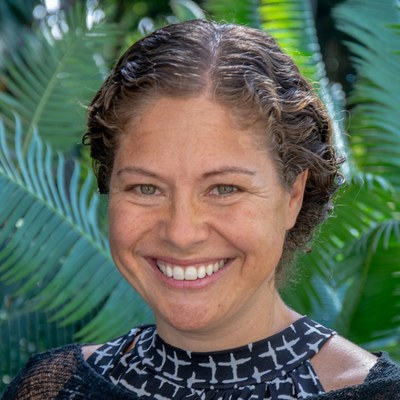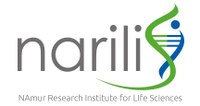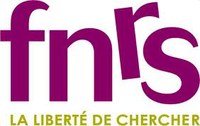Alison Forrester
Presentation
 Alison Forrester is an FNRS Principle Investigator (Chercheur Qualifiée), her research group is based in the Research Unit of Cell Biology (URBC), at the University of Namur, Belgium. Alison did her PhD in Toxicology and Dermatology at Newcastle University (UK) under the supervision of Profs Nick Reynolds and Faith Williams, studying the mechanism that underlies formation of a dioxin-induced epidermal pathogenesis, chloracne. This was followed by a post-doctoral position at TIGEM (Telethon Institute of Genetics and Medicine, Italy) in Carmine Settembre’s lab, where she worked on the quality control role of ER-phagy during postnatal bone growth and anterograde trafficking. She did a second post-doctoral project at the Institute Curie (France) in Ludger Johannes’ lab, where she worked on elucidating the mechanism of action of an inhibitor of retrograde transport, as well as expanding on her microscopy expertise through studying clathrin-independent endocytosis using lattice light-sheet microscopy. Alison’s work has been published in top tier journals such as Nature, Nature Chemical Biology and the EMBO Journal.
Alison Forrester is an FNRS Principle Investigator (Chercheur Qualifiée), her research group is based in the Research Unit of Cell Biology (URBC), at the University of Namur, Belgium. Alison did her PhD in Toxicology and Dermatology at Newcastle University (UK) under the supervision of Profs Nick Reynolds and Faith Williams, studying the mechanism that underlies formation of a dioxin-induced epidermal pathogenesis, chloracne. This was followed by a post-doctoral position at TIGEM (Telethon Institute of Genetics and Medicine, Italy) in Carmine Settembre’s lab, where she worked on the quality control role of ER-phagy during postnatal bone growth and anterograde trafficking. She did a second post-doctoral project at the Institute Curie (France) in Ludger Johannes’ lab, where she worked on elucidating the mechanism of action of an inhibitor of retrograde transport, as well as expanding on her microscopy expertise through studying clathrin-independent endocytosis using lattice light-sheet microscopy. Alison’s work has been published in top tier journals such as Nature, Nature Chemical Biology and the EMBO Journal.
Contact: Alison Forrester
Research | FNRS MIS grant - Drugging the ERES
Alison’s research focus is now on the modulation of protein secretion from mammalian cells and how this can be linked to treating diseases of aberrant secretion. With expertise in advanced microscopy, her team studies the effect of modulation of the early secretory pathway on cellular homeostasis and protein secretion. Alison’s research is interdisciplinary, working with collaborators to identify novel modulators of the secretory pathway and their mechanisms of action. Alison is an expert in advanced bioimaging techniques including lattice light-sheet microscopy and high-resolution confocal microscopy, making use of the cutting-edge technologies now available at the imaging platform at the University of Namur (“MorphIM”). To realise this work, she has been awarded a research position at the University of Namur (F.R.S-FNRS Chercheur Qualifiée) and an Incentive Grant for Scientific Research (MIS) from FNRS.
MIS project abstract
Exit of proteins from the endoplasmic reticulum (ER) is a crucially regulated step in the early secretory pathway. ER exit sites (ERES) are deputed to the sorting of cargo into COPII coated carriers, for transport to the Golgi apparatus. This is a highly dynamic process, regulated by the orchestration of a number of proteins at the outer edge of the ER membrane. We have recently discovered the first pharmacological inhibitor of ERES, Retro-2. Using Retro-2 as a tool to study acute ERES inhibition, and a proof of principle that ERES can be targeted, my project proposal addresses three questions:
1) How does the target of Retro-2, ERES component protein Sec16A, mediate ERES function and cargo selection?
2) What is the effect of acute ERES modulation on organelle and cellular homeostasis?
3) How can the ERES be developed as a therapeutic target?
Performing a combination of fundamental research on regulation of ERES function, and application of this novel tool to cell/tissue homeostasis and disease, my group will mix interdisciplinary approaches (structural biology, mass spectrometry, interactomics, advanced bioimaging and medicinal chemistry) to provide a solid foundation on which we will develop the ERES as a novel therapeutic target.
mentor | Maya Schuldiner - Weizmann Institute of Science (Israel)
 Maya Schuldiner, is a professor in the Department of Molecular Genetics at the Weizmann Institute of Science in Israel.
Maya Schuldiner, is a professor in the Department of Molecular Genetics at the Weizmann Institute of Science in Israel.
Prof. Schuldiner is a leading scientist in the field of intracellular trafficking and organisation, dedicated to developing novel methods to understand the role of proteins in organisation of organelles.
More info about the Maya Schuldiner lab
Affiliation














